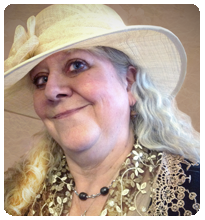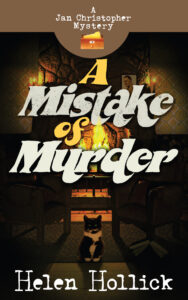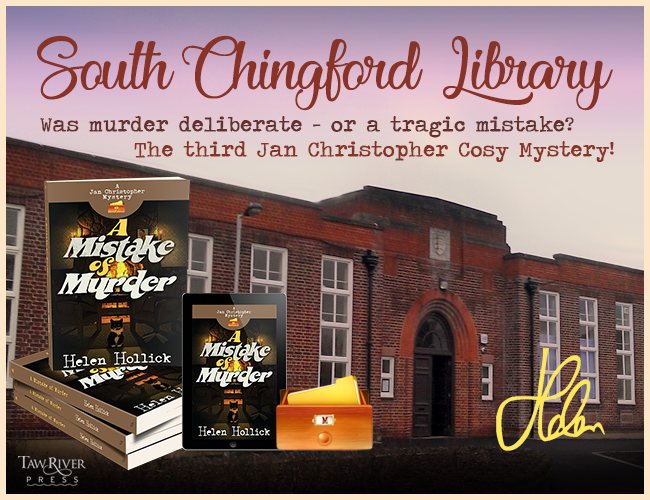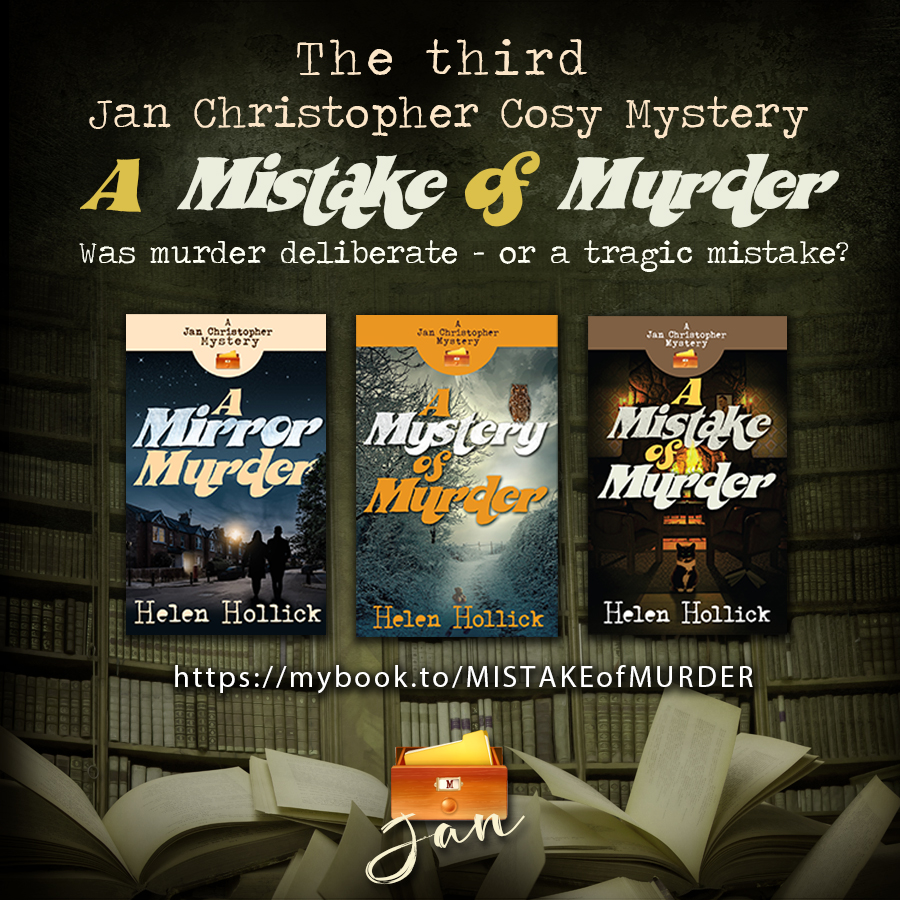 What happens when a historical fiction writer turns to crime? No, I’m not talked about me and the Mélisende crime thrillers, but Helen Hollick who has just published her third cozy crime. But she can’t shake off the historical fiction writer’s magic cloak. Her 1970s set series feature heroine Jan is the result.
What happens when a historical fiction writer turns to crime? No, I’m not talked about me and the Mélisende crime thrillers, but Helen Hollick who has just published her third cozy crime. But she can’t shake off the historical fiction writer’s magic cloak. Her 1970s set series feature heroine Jan is the result.
Over to Helen!
“I do sometimes wonder why I decided to write historical fiction. As with any fiction you have your plot, your characters, their loves, hates, triumphs and tragedies. How they get into and out of situations. What happens – or what doesn’t. But on top of all that for anything historical there’s the research. The what happened when, where, why and how.
Of course, other genres also require research: science-fiction needs the science bits. Tell your reader that the North Star is in the constellation of Orion, and you’re done for. (It’s in Ursa Minor – also known as the Little Bear and the Little Dipper.) Romance needs research: your story will be deemed implausible if blue-eyed blonde Miss x is dating glamorous film star Mr X and he picks her up for their first date in a clapped out old Ford Escort. Unless he’s deliberately hiding his identity. Even so, I doubt Miss Blonde will be impressed. (Even we thriller writers need to know our Glocks from our Sig Sauers!)
Historical fiction can be hard to research when you’re writing about a period that has little written record, so for an author there is quite a bit of ‘making it up’ to be added in between the factual bits.
Not so easy when writing history that is within memory of your readers, though, It’s the nit-pick things they notice. Was the scent of Flash floor cleaner lavender or pine? Was Ty-phoo tea more popular than Tetleys? (And this would be loose tea, not teabags.) When did Izal, that scratchy toilet paper which we used as children for tracing paper, fall out of use? And that awful sterilised milk…? (I had the similar problem with videotape CCTV and changing from thermal fax paper to plain paper fax in the 1970s for AURELIA – my sympathies!)
The lead character of my cosy mystery series is Jan Christopher. She is a young library assistant working in a North London suburb public library in the early 1970s. Orphaned at a young age she was adopted by her father’s brother, DCI Tobias Christopher and his wife, Madge. One rainy day, she is to meet her uncle’s new detective constable, Laurie Walker. It’s love at first sight.
I chose the 1970s because that’s when I was a young library assistant working in South Chingford Library. I wanted to write an easy-read series where I could use my ‘library knowledge’, along with background detail of horse riding in Epping Forest. Outside of TV cop shows – Lewis, Vera, Foyles War, Poirot and such – I know very little about police procedure, so the cosy mystery appealed to me as these lean towards amateur sleuths and daily life revolving around a crime, rather than the other way round. All well and good, but I soon realised that there is a lot about the 1970s that I’ve either forgotten or was oblivious to as a naïve sixteen-to-nineteen-year-old! Politics seem to have completely passed me by.
The 1970s was the era of the workers’ Three Day Week and scheduled power cuts. I’m utterly amazed that I barely remember them! I do recall trying to convince people that, yes, I know you’ve got a torch, but for safety reasons we really do need to close the library if we have no lighting. I do not remember sitting at home by candlelight, annoyed that I was missing whatever was on TV. Maybe because there was only one television in the house and that was in the sitting room? No TV up in my room, and I don’t think I acquired my own stereo system until the mid-70s.
I do remember demonstrating to my Dad the wonders of Dolby. I played a track where it sounded like an aeroplane had flown right across the room. Stunning back then! Just for the record while I’m here: I saw the original first release of Star Wars, and was blown away by that opening scene where the Imperial Star Ship comes in overhead. The entire cinema shook, and it felt as though that ship really had passed over the top of us. Common stuff now, but back then…? Awesome!
So I’m finding that I’m having to do just as much research for my cosy mysteries as I had to do for my serious historical fiction, or my seafaring nautical adventures. But how on earth did we manage without smart phones, e-readers, computers, Netflix or Google…?
What one item would you miss the most if you found yourself transported back into the past?”
Brilliant, Helen! Both you and I have learnt just how selective our own memories can be. I think writing historical/alternative historical fiction has trained us to doubt everything – a valuable lesson when writing in a different era even when relatively modern!)
What’s the third Jan Christopher mystery A Mistake of Murder about?

Was murder deliberate – or a tragic mistake?
A series of burglaries and an elderly person is murdered. Can library assistant Jan Christopher help discover whether murder was a deliberate deed – or a tragic mistake?
January 1972. The Christmas and New Year holiday is over and it is time to go back to work. Newly engaged to Detective Sergeant Lawrence Walker, library assistant Jan Christopher is eager to show everyone her diamond ring, and goes off on her scheduled round to deliver library books to the housebound – some of whom she likes; some, she doesn’t.
She encounters a cat in a cupboard, drinks several cups of tea… and loses her ring.
When two murders are committed, can Jan help her policeman uncle, DCI Toby Christopher and her fiancé, Laurie, discover whether murder was a deliberate deed – or a tragic mistake?
About Helen
First accepted for traditional publication in 1993, Helen became a USA Today Bestseller with her historical novel, The Forever Queen (titled A Hollow Crown in the UK) with the sequel, Harold the King (US: I Am The Chosen King) being novels that explore the events that led to the Battle of Hastings in 1066. Her Pendragon’s Banner Trilogy is a fifth-century version of the Arthurian legend, and she writes a nautical adventure/fantasy series, The Sea Witch Voyages. She has also branched out into the quick read novella, ‘Cozy Mystery’ genre with her Jan Christopher Murder Mysteries, set in the 1970s, with the first in the series, A Mirror Murder incorporating her, often hilarious, memories of working as a library assistant.
Her non-fiction books are Pirates: Truth and Tales and Life of A Smuggler. She lives with her family in an eighteenth-century farmhouse in North Devon and occasionally gets time to write…
Buy A Mistake of Murder
Available from an Amazon near you, or order from any bookstore. Paperback and e-book available. https://mybook.to/MISTAKEofMURDER
Helen’s Amazon author page: https://viewauthor.at/HelenHollick
Helen’s website: https://helenhollick.net/
Subscribe to Helen’s newsletter: https://tinyletter.com/HelenHollick
Alison Morton is the author of Roma Nova thrillers – INCEPTIO, CARINA (novella), PERFIDITAS, SUCCESSIO, AURELIA, NEXUS (novella), INSURRECTIO and RETALIO, and ROMA NOVA EXTRA, a collection of short stories. Audiobooks are available for four of the series.Double Identity, a contemporary conspiracy, starts a new series of thrillers. JULIA PRIMA, a new Roma Nova story set in the late 4th century, is now out.
Find out more about Roma Nova, its origins, stories and heroines and taste world the latest contemporary thriller Double Identity… Download ‘Welcome to Alison Morton’s Thriller Worlds’, a FREE eBook, as a thank you gift when you sign up to Alison’s monthly email update. You’ll also be among the first to know about news and book progress before everybody else, and take part in giveaways.















[…] Interview with Debbie 23rd Feb Alison Morton Writing the Past 24th […]